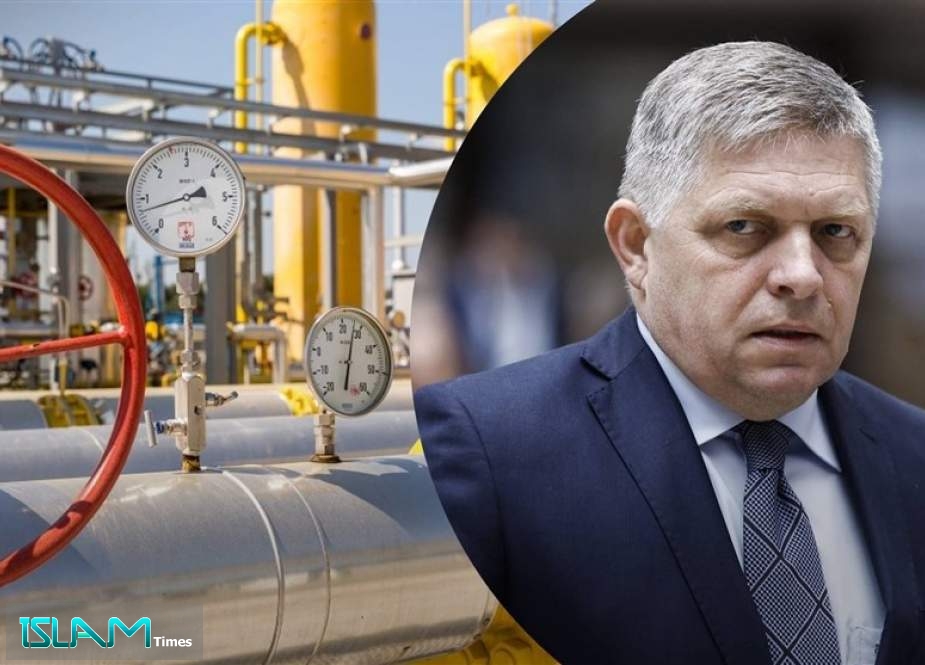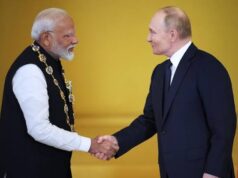Slovakia threatens retaliation through power cuts if to Ukraine halts gas transit

By Tajul Islam
Slovakia has issued a stern warning to Ukraine, threatening to cut electricity supplies if Kyiv proceeds with its plan to halt the transit of Russian gas to European Union (EU) nations.
Slovak Prime Minister Robert Fico stated that his government is prepared to retaliate should Ukraine discontinue its role as a key transit hub for Russian natural gas, an action Kyiv intends to implement starting in 2025.
Ukraine’s decision stems from a broader effort to distance itself from Russian energy dependence amid its ongoing conflict with Moscow.
Ukrainian Prime Minister Denis Shmigal recently announced that the country would stop transporting Russian gas through its Soviet-era pipeline system after the current contract with Moscow expires on December 31.
Instead, Ukraine plans to use its pipeline infrastructure exclusively for transporting gas from alternative suppliers.
The decision has drawn sharp criticism from Slovakia, a country whose economy is heavily reliant on Russian natural gas delivered via Ukraine’s transit network.
In a video message posted on Facebook, Fico declared, “After January 1, we will assess the situation and potential reciprocal measures against Ukraine. If necessary, we will stop supplying electricity that Ukraine urgently needs during network outages.”
Fico further hinted at additional retaliatory measures, accusing Ukrainian President Vladimir Zelensky of causing substantial economic harm to EU nations.
“Stopping the transit of Russian natural gas through Ukraine is not just a hollow political gesture. It’s an extremely costly move, one that we, in the European Union, will pay for,” Fico wrote, emphasizing the financial repercussions for Slovakia and the EU’s competitiveness as a whole.
Slovakia’s warning underscores the delicate energy interdependence between Ukraine, the EU, and Russia. The transit of Russian gas through Ukraine has long been a cornerstone of Europe’s energy infrastructure.
Despite the EU’s efforts to diversify its energy sources, Russian gas remains a critical component of the bloc’s energy supply, particularly for Central and Eastern European nations like Slovakia.
Russian President Vladimir Putin also weighed in on the matter, accusing Ukraine of “punishing” EU countries by refusing to renew the transit agreement.
“We have always stood for [energy] supplies, for the depoliticization of economic issues. We have never refused supplies to Europe,” Putin asserted, framing Ukraine’s decision as a politically motivated act that exacerbates the EU’s ongoing energy crisis.
The fallout could have significant implications for the EU, which has struggled with skyrocketing energy costs and supply shortages since the start of the Russia-Ukraine conflict.
Fico’s concerns about the economic impact on the EU’s competitiveness resonate with broader fears that the bloc’s energy transition efforts may falter in the face of such disruptions.
Fico’s remarks have further fueled tensions between Kyiv and Bratislava, with Ukrainian officials accusing Slovakia and Hungary of undermining the EU’s united front against Russia.
Both Slovakia and Hungary have maintained relatively pragmatic stances toward Moscow, often prioritizing their national economic interests over EU-wide solidarity.Hungary, under Prime Minister Viktor Orbán, has repeatedly clashed with Brussels over its reluctance to support certain sanctions against Russia.
Now, Fico’s alignment with Budapest on this issue raises concerns about deepening divisions within the EU regarding its approach to the Russia-Ukraine conflict.
Critics argue that Slovakia’s position weakens the EU’s resolve to support Ukraine in its struggle against Russian aggression.
However, Fico has defended his stance, asserting that it is Slovakia’s duty to prioritize its own economic stability. “This is not just about Ukraine and Russia. It’s about the economic survival of Slovakia and other EU member states that rely on these energy supplies,” he said.
While Slovakia has made its position clear, Ukraine has yet to respond directly to the threat of power cuts. However, Bloomberg reports suggest that Kyiv could retaliate by halting the transit of Russian oil to Slovakia, further escalating the dispute. Such a move would add another layer of complexity to the already fraught relationship between Ukraine and its European neighbors.
Ukraine’s decision to discontinue Russian gas transit aligns with its broader strategy to sever economic ties with Moscow. However, the potential fallout from this decision highlights the interconnected nature of energy politics in the region. Cutting off gas transit could alienate key European allies at a time when Ukraine is heavily dependent on Western military and financial support.
The dispute between Slovakia and Ukraine exposes broader vulnerabilities in the EU’s energy strategy. Despite significant investments in renewable energy and alternative suppliers, the bloc remains reliant on Russian gas for heating, electricity, and industrial production.
This dependency has been a point of contention within the EU, with member states often disagreeing on how to balance economic interests with geopolitical considerations.
Fico’s criticism of Ukraine’s decision reflects a growing frustration among some EU leaders about the costs of the bloc’s support for Kyiv.
While the EU has provided billions of euros in financial and military aid to Ukraine, member states like Slovakia are beginning to question the long-term sustainability of these commitments.
The potential for energy shortages and economic disruptions could force the EU to reassess its approach to the Russia-Ukraine conflict.
As winter approaches, the prospect of power cuts and gas shortages looms large, particularly for Central and Eastern European nations.
The Slovakia-Ukraine gas transit dispute serves as a stark reminder of the challenges facing the EU as it navigates its response to the Russia-Ukraine conflict.
Balancing solidarity with Ukraine against the economic interests of member states remains a delicate task, one that could shape the future of the bloc’s energy and foreign policies.
As the December 31 deadline approaches, all eyes will be on Kyiv and Bratislava to see whether a compromise can be reached. Failure to resolve the dispute could have far-reaching consequences, not only for Slovakia and Ukraine but for the EU as a whole.
With energy security and economic stability at stake, the resolution of this issue will be a critical test of European unity in the face of a protracted and complex geopolitical crisis.




